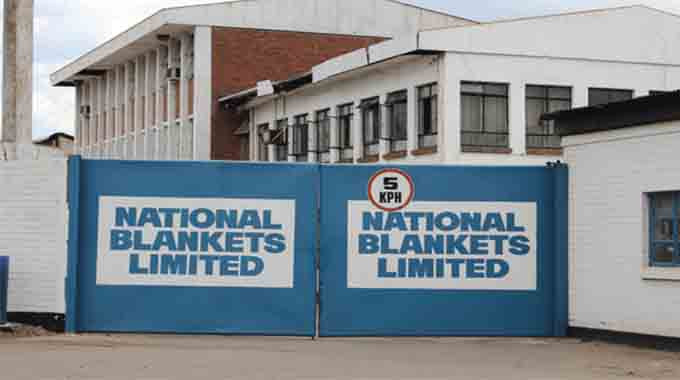
BULAWAYO-BASED textile maker National Blankets is seeking a partner to revitalise the business, an official has said.
Early in 2021, the textile firm restarted operations after avoiding liquidation and emerging from judicial supervision when shareholders paid all creditors’ debts amounting to millions of dollars.
But in late 2021, the company temporarily stopped producing because the tax collector denied it clearance due to an estimated $800 000 debt, which was ultimately settled.
Tich Mujuru, the company’s largest shareholder, told NewsDay that National Blankets was looking for an investor with sufficient capital to run the business.
“The company manufactures seasonal products and we used to have three shifts which would run for 24/7 and at times two shifts which ran from 8am to 5pm. So at the moment we are looking for an investor with enough money to run the company.
“As for how much is needed, I would first need to consult stakeholders in the company because I am at director level,” he said.
In a 100-day cycle report, Presidential Affairs minister in charge of Implementation and Monitoring of government programmes, Joram Gumbo said the company needed funding to resume production.
“National Blankets is out of judicial management and it now needs funding to kick-start production. It is expecting to procure raw material (yarn) from India,” he said.
- Gumbo defends government projects
- Empower Bank issues loans to 7 000 youths
- Govt develops 50 irrigation schemes
- Govt pledges $2bn for NRZ rehab
Keep Reading
National Blankets is one of the textile players that are expected to benefit from the Special Drawing Rights (SDRs) intended for capitalisation and retooling of the sector.
The International Monetary Fund (IMF) gave Zimbabwe SDR677 million (US$958 million), as part of the US$650 billion SDR general allocation that was released to all IMF members in 2021.
To support important economic sectors like horticulture, industry retooling, tourism and irrigation systems for smallholder farmers, Treasury diverted a portion of the cash from the SDR allocation.
Government has been urging businesses to apply for support for the productive sector, which has a total of US$80 million set aside.
The influx of cheap imports has, however, hampered the revival of the textile industry, and stakeholders continue to urge the government to take action to incentivise the sector.
Since producers prefer the export market to local players, access to cotton lint has also been a challenge.
National Blankets used to be one of Bulawayo’s largest employers during its heyday.










